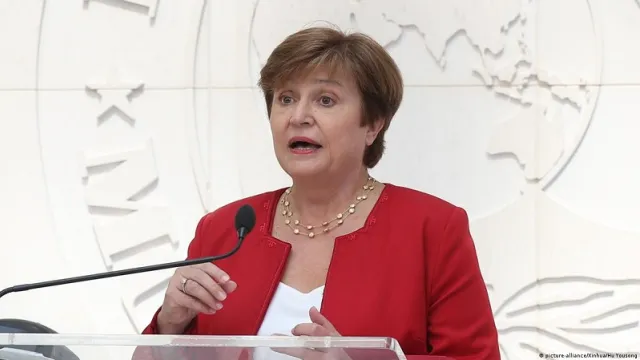The world economy is entering into recession, warns IMF

The world economy is entering into recession, warns IMF
An expected slowdown in activity in the world's biggest economies - United States, Europe and China - is expected to cause recession across the world in the new year.
According to the latest update from the International Monetary Fund (IMF), the global economy will be in recession in 2023 as the inflation crisis, the war in Ukraine, rising interest rates, and Covid-19 pandemic ravaging China conspire to slow growth.
"We expect one-third of the world economy to be in recession," IMF Managing Director Kristalina Georgieva said on US' CBS news programme Face the Nation.
"Even countries that are not in recession, it would feel like a recession for hundreds of millions of people," she added.
In October last year, the IMF gave a gloomy outlook of the global economy for 2023 citing the war in Ukraine by Russia — one of the world's largest producers of crude oil — as well as surging interest rates as central banks around the world move to check on rising commodity prices and inflation crisis.
For the better part of 2022, the war in Ukraine and the Western sanctions slapped on Russia have pushed energy and food prices up, disrupted supply chains, and largely hurt global recovery from the Covid-19 pandemic.
Since then China has since dumped its zero-Covid stance in a move toto reopen its economy amid a rising wave of new coronavirus infections across the country that has left healthcare system buckling.
Read also: IMF disburses Sh55 billion to Kenya, lauds CBK’s fiscal stance
Ms Georgieva warned that China, the world's second-largest economy, would face a difficult start to 2023.
"For the next couple of months, it would be tough for China, and the impact on Chinese growth would be negative, the impact on the region will be negative, the impact on global growth will be negative," she said.
Already, a growing list of countries are now requiring travelers from China to take a COVID-19 test prior to boarding their flight, as China battles a nationwide outbreak.
U.S., U.K., Australia, Canda, India, Japan and several European nations are imposing tougher COVID-19 measures on Chinese travelers amid concerns over a lack of data on infections in China and fears of the possibility that new variants may spread.
Ms Georgieva's revelations will be alarming for economists and people around the world, not least in Kenya and Africa which experienced a tough year in 2022.
The IMF approved the disbursement of $447.39 million (Kes55 billion) to Kenya in December as part of a 38-month financing deal struck with the IMF in April 2021.
The multilateral lender said termed Kenya's economy "resilient" and projected that it is set to grow by 5.3 percent in 2022, and noted that inflation in East Africa's largest economy was expected to peak in early 2023.
The latest data from the Kenya National Bureau of Statistics show that the country's inflation dropped to 9.1 percent in December 2022, down from 9.5 percent reported in November. The easing of the rate of change in the cost of living was on account of lower food and fuel prices.
Kenya's inflation peaked at 9.6 percent in October last year.



